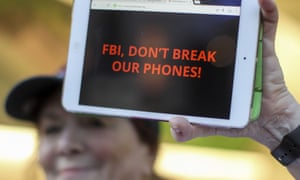Can the government force you to unlock your own phone?

Apple and the FBI continue to battle over unlocking the San Bernardino gunman’s iPhone. A further question, though, separate from the immediate case, is certain to impact future cases: what if the gunman was still alive and available?
More broadly, what if the government wants access to your phone and you refuse to cooperate? If Apple maintains its current position, your cooperation (as the phone’s owner) may be the only means of accessing the phone’s contents. But what if you refuse?
The answer largely hinges on how we interpret the US constitution’s fifth amendment. The amendment provides that “No person . . . shall be compelled in any criminal case to be a witness against himself.” This line is the famous “right to remain silent”. But, according to the courts, this right only protects communications that are “testimonial” – that is, communications or actions that somehow disclose the contents of your mind. This interpretation is why a defendant cannot plead the fifth when forced to provide a blood sample or a sample of handwriting; these results of compulsion do not count as testimonial.
Ironically, then, the government can force you to unlock your iPhone through fingerprint recognition, because fingerprints are not testimonial. But what if your phone has a passcode? Keying in the code is of course a physical act, but it is an act guided by knowledge. Because this act reveals the contents of your mind, it is arguably testimonial and is protected under the fifth amendment.
No comments:
Post a Comment